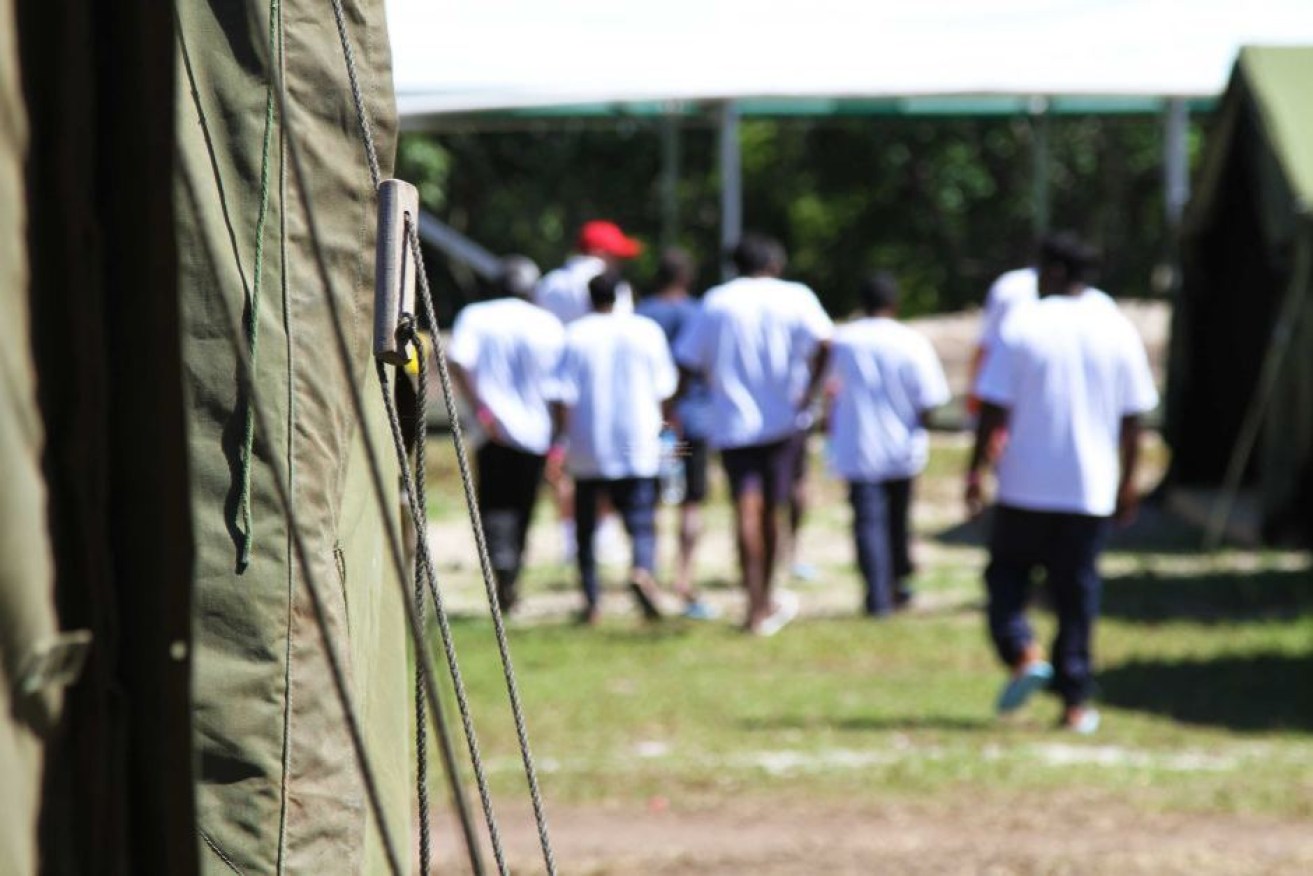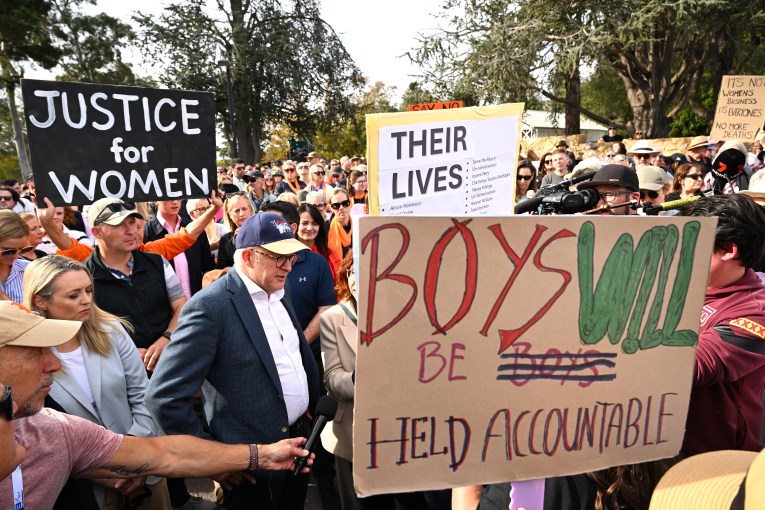Labor, Greens close to deal on medical evacuations bill


Refugees detained offshore on Nauru have given accounts of conditions on the island. Photo: AAP
The Morrison government has launched a sensational last-minute bid to avoid a historic loss on the floor of Parliament by claiming legislation to allow the medical evacuation of asylum seekers is unconstitutional.
Speaker Tony Smith has revealed late on Tuesday afternoon that he had received a letter from Attorney-General Christian Porter that included legal advice from the Solicitor-General Dr Stephen Donaghue.
The Speaker also revealed that Mr Porter asked him to keep this advice confidential, which he declined to do.
The advice remains contestable, given the Solicitor-General also advised that a range of MPs were not dual citizens and were eligible to sit in Parliament – before the High Court had ruled on their cases.
Greens leader Richard Di Natale has urged Parliament to push ahead with the vote on the medivac legislation.
“We can vote on this today,” he said. “I would be extremely disappointed if this was used as an excuse to walk away.”
Parliament was to start debate on the amendments to the medical evacuations bill at 4.30pm on Tuesday.
It will follow a day of negotiations between Labor and the Greens, with Opposition Leader Bill Shorten set to strike a deal with the minor party to allow up to seven days for a minister to decide on medical evacuations and a new character test for refugees.
The New Daily has confirmed the changes would grant a minister an initial 72-hour period to consider an application for a medical evacuation of an asylum seeker from Manus Island or Nauru – substantially longer that the original 24 hours proposed.
After that, the minister will have up to a week to resolve the matter in discussion with the expert panel.
A new character test will also be applied to allow the minister to refuse applications on the grounds of serious crimes, rather than simply a national security risk.
The agreement could set the scene for a historic loss on the floor of Parliament on Tuesday night for Prime Minister Scott Morrison.
While the deal still requires the support of all four remaining independents who previously agreed to the amendments passed by the Senate, Kerryn Phelps and Rebekha Sharkie are believed to be on board.
In a sign that support is inching closer, independent Cathy McGowan has confirmed she will vote for the deal. That suggests if the Labor deal with the Greens holds, the numbers required on the floor of Parliament are there.
“I intend to support this negotiated position when the legislation and amendments come to the House,” Ms McGowan said.
If Parliament votes for the deal as proposed by Labor and the crossbench, it will be the first time it has legislated in defiance of a government since 1929.
While the crossbench argues the medical evacuations legislation is not a confidence bill, it could set the scene for a no-confidence motion.
The Greens have already agreed to the third Labor amendment to limit medical evacuations to the existing group of about 1000 asylum seekers on Manus Island and Nauru. Some of those people have been detained for years.
Home Affairs Minister Peter Dutton warned Mr Shorten must bear the political consequences if the legislation passed and refugee boats resume.
“We’ve watched this show before. We watched it with Kevin Rudd and Julia Gillard. They did exactly the same thing. At least Kevin Rudd waited until he got into office before he dismantled the government’s successful border security policy,” he said.
“Mr Shorten wants to be prime minister of this country and yet has shown he doesn’t have the basic leadership capacity to make decisions on a crucial area of public policy. And he should apologise for the mistakes that he’s made.”
Earlier, Senator Di Natale warned the Greens could kill the bill to allow medical evacuation of asylum seekers from Manus and Nauru unless Labor agreed to further changes.
Mr Shorten’s gamble on amending his own legislation to respond to Mr Morrison’s attacks was always a risk to the delicate agreement negotiated between Labor and the crossbench in the Senate.
If any of the five crossbenchers previously believed to be on side with the legislation cannot support the new amendments, the reforms will fail and Mr Shorten will face a savage internal backlash.
The key sticking points have been Labor’s shift to demand broader ministerial powers to deny medical evacuations and the original 24-hour timeframe proposed for a minister to decide.
Senator Di Natale said Labor’s proposed amendments did not specify a timeframe for ministers to decide on medical evacuations beyond extending it further than 24 hours. Dr Phelps had signalled she was open to extending that, possibly to 72 hours.
“What I am saying is we want people who are sick to get access to medical care,” Senator Di Natale said.
“We want it to happen much more quickly than is happening right now. And any amendment put forward by Labor to slow that process down and potentially make it harder than is currently the case we won’t support.”
The lack of clarity was raised as an issue by Labor frontbencher Anthony Albanese and Pat Conroy on Monday night in shadow caucus.
Mr Albanese’s intervention was unusual. Shadow ministers do not generally speak in ALP caucus, unless it relates to a portfolio matter.
Earlier, Mr Shorten met with crossbench MPs to brief independents and the Greens on Labor’s proposals.
The Greens and Dr Phelps also raised concerns about the definition of criminality given that some asylum seekers may have been jailed overseas for political protests.








